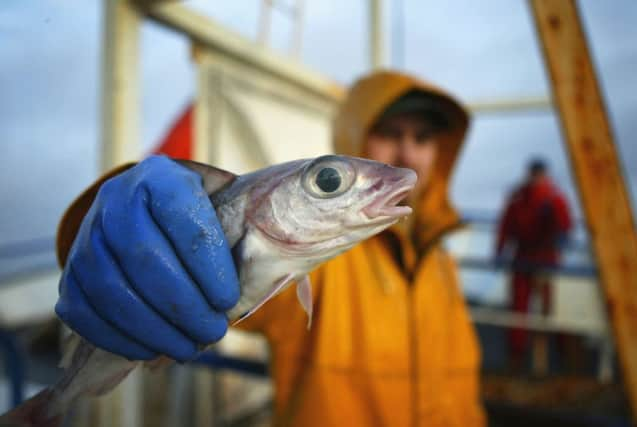Fishing for more benign Eurocrats


THE 24 members of the new European Parliament fisheries committee, sworn in over the summer after May’s tumultuous election, bear a huge responsibility.
Under so-called co-decision making – introduced for fisheries policy by the Lisbon Treaty of 2009 – they share with member state governments the power to make or break the continent’s fishing industry.
Advertisement
Hide AdAdvertisement
Hide AdThe previous fisheries or PECH committee oversaw reform of the common fisheries policy (CFP).
While radical change was long overdue, and the fishing industry particularly welcomed a shift towards regional management, the headline-grabbing element of the new CFP – the landings obligation, or discard ban as it is popularly known – is proving a disaster.
A perfectly laudable aim (no fisherman that I know gladly throws healthy fish back into the sea), it is practically impossible to achieve under the existing quota system without bankrupting large parts of fleets from Peterhead to the Port of Vigo in Spain.
I believe there are two reasons why we have ended up in this position.
Firstly, members of the previous PECH Ccommittee and member state governments paid more attention to campaigns waged by environmental NGOs and celebrity chefs than they did to the difficult, sometimes very technical, obstacles that they were told would prevent an effective ban being introduced.
In other words, they thought long and hard about the aim of banning discards but gave barely a moment’s consideration to how to implement it. In effect, what we have is the result of a process rather than a workable solution to a complicated issue. This process has made wider society very aware of how easy it is to create bad law.
Secondly – and to some extent the first reason is a symptom of this – the committee did not place nearly enough emphasis on building a strong evidence base to gain a clear sense of what is going on in the fishing industry.
As I and many of my counterparts around Europe see it, they believed the rhetoric of environmentalists who portrayed us as greedy businessmen intent on scraping the ocean floors clean of fish regardless of the consequences to ourselves or the environment.
Advertisement
Hide AdAdvertisement
Hide AdClose students of the fishing industry recognise this kind of stuff for what it is – a grotesque caricature.
I sincerely hope that in the first instance members of the new PECH committee (led by chair Alain Cadec, an experienced French MEP, and including nine new MEPs) will work with the industry and governments to devise a solution to the landings obligation issue.
But above all, I hope that they will take an open-minded approach to the business of fisheries policy.
Fishing is, after all, a commercial activity, one with an ancient lineage that has and continues to sustain communities all around Europe’s shorelines.
If it bore any resemblance to the picture painted by green propagandists, it simply wouldn’t exist. If we fished like irresponsible Amazonian loggers we would have done ourselves out of a living a long time ago.
The Scottish White Fish Producers’ Association, along with other industry organisations across Europe, such as Europêche and the more recently established Blue Fish, of which I am vice-president, will be making the case for a more benevolent understanding of the industry among politicians and policy-makers in Brussels and Strasbourg.
And we will provide the evidence. For example, as a result of methods adopted by the industry the majority of species in north-east Atlantic fishing grounds are now at maximum sustainable yield (MSY) levels. MSY is a yardstick used to show that stocks are being fished sustainably.
Haddock, for instance, the staple diet of fish-loving Scots, has been fished sustainably for a decade and is now a stable of MSC-certified stocks, the gold standard of sustainability and responsibility.
Advertisement
Hide AdAdvertisement
Hide AdAs the European economy continues to struggle to recover from the financial crisis of six years ago, it would be remiss of the EU’s politicians to do damage to any sector, least of all one that is so much leaner and environmentally-friendly than it is portrayed on TV or in Greenpeace tweets.
• Mike Park is chief executive of the Scottish White Fish Producers’ Association
SEE ALSO